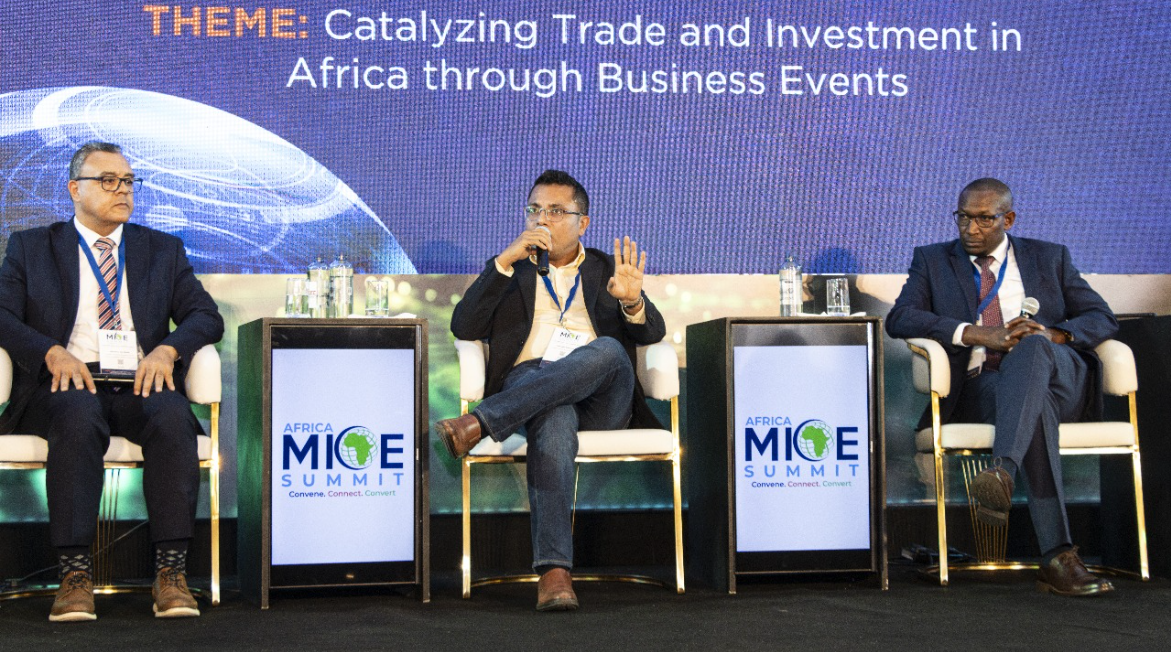

Infrastructure gaps, fragmented marketing and limited investment in event technology are curtailing the growth of the MICE (Meetings, Incentives, Conferences and Exhibitions) industry, sector experts now say.
This has seen key MICE destinations in Africa, including Kenya, fail to maximise on the potential in this sector, which last year came second to leisure for the reasons for international visits to Kenya.
Fragmented marketing points to African destinations often competing instead of collaborating to bid and win major conferences to the continent.
While the value of the global MICE industry is projected to surpass $1.78 trillion (Sh229.8 trillion) by 2030, from $916 billion (Sh118.3 trillion) in 2019, Africa captures less than three per cent of the global MICE business share.
Only two African cities (Cape Town and Kigali) regularly rank in the top 100 global MICE destinations in ICCA (International Congress and Convention Association) rankings.
According to the Africa Tourism Monitor, hosted MICE events generate three to five times more revenue per visitor compared to leisure tourism.
Industry data shows Kenya hosted over 3,000 business events in 2023, contributing approximately Sh11 billion to the national economy, with Nairobi taking up 80 per cent of events, even as Mombasa and Kisumu record a 20 per cent year-on-year growth in conference bookings.
“We cannot fix what we don’t fully understand. Diagnosing the structural gaps is the first step to positioning Africa globally,” said Hasnain Noorani, MD, PrideInn Hotels, Resorts and Camps, during a panel discussion at the Africa MICE summit in Nairobi.
Noorani called for decentralising of MICE infrastructure development by building convention capacity in secondary cities like Eldoret, Mwanza and Douala.
Kenya and other regions can also leverage the African Contentinental Free Trade Area unified market of 1.4 billion people to promote regional MICE circuits and cross-border trade expos, he noted, and adoption of destination marketing strategies rooted in Africa’s value proposition — cultural vibrancy, year-round climate and cost competitiveness.
“MICE is not just about meetings; it’s about market linkages, mobility, and mindset. Our transformation must be both infrastructural and intentional,” he said.
KICC chief executive James Mwaura, who is also chair of the International Congress and Convention Association (ICCA Africa Chapter), said countries must invest in World-class convention centers, sustainable transport and digital platforms, even as he noted KICC is undergoing expansion to increase its capacity to host events.
According to Mwaura, Kenya has proven ability to host continental and global events such as WTO MC13, TICAD, Africa Climate Summit among many others.
We need Public-Private Partnerships to finance and manage modern MICE infrastructure. Regional blocs such as EAC, SADC, ECOWAS can harmonize policies and jointly bid for large events,’ Mwaura noted.
The continent can also establish an Africa-wide MICE marketing platform under AU and AfCFTA, invest in digital readiness like virtual platforms, AI-driven event management and data-driven decision-making, experts noted.
Governments can also designate MICE as a national economic priority sector.
Zuri Events CEO Kezy Mukiri said: “We need to use MICE to catalyse trade and investment, Africa’s future is now.”
Noorani further said the continent can borrow from success stories withing Africa such as Rwanda’s Kigali Convention Centre which hosted over 110 international events in 2023 alone, contributing over $80 million (Sh10.3 billion) to the local economy.
“Rwanda's visa-on-arrival policy and Rwanda Convention Bureau’s centralised planning are key enablers,” he noted.
South Africa, through South Africa National Convention Bureau (SANCB) secured 66 international bids in 2022, translating to R1.2 billion (Sh588 million) in projected economic impact.
Kenya hosted over 3,000 business-to-business events in 2023 mainly in Nairobi, generating approximately Sh11 billion in direct MICE-related revenue.
“There are only five convention centers on the continent with a capacity exceeding 5,000 persons, limiting our ability to host mega-events,” said Noorani.
Fragmented visa policies remain a top deterrent with intra-African business travel still difficult where only 12 out of 54 countries offer visa-free or visa-on-arrival to all Africans. There is also limited air connectivity—only 33 per cent of African cities are directly linked by flights.
Experts meeting in Nairobi for the Africa MICE Summit have hence called for collaboration including PPPs for infrastructure development, open skies and joint bidding for major global conferences.













